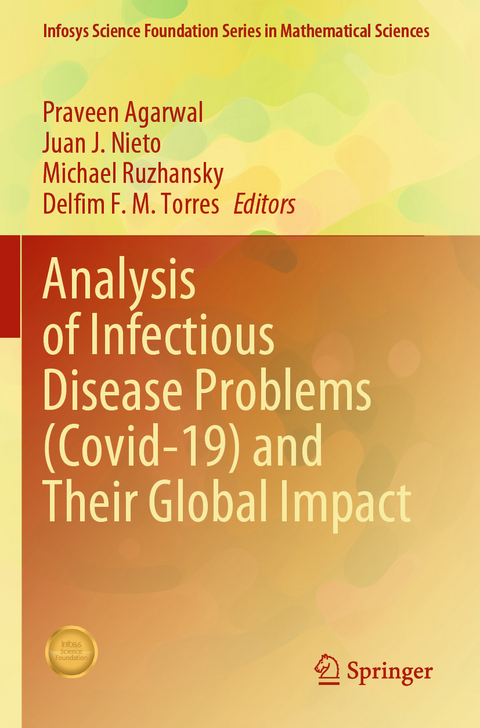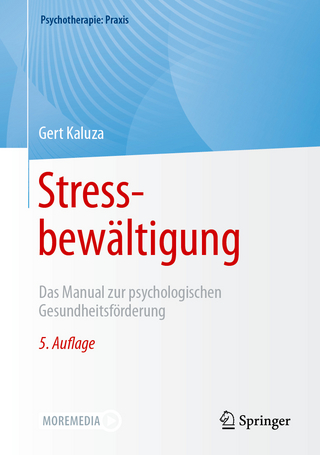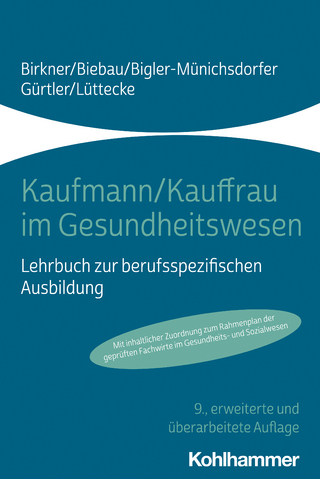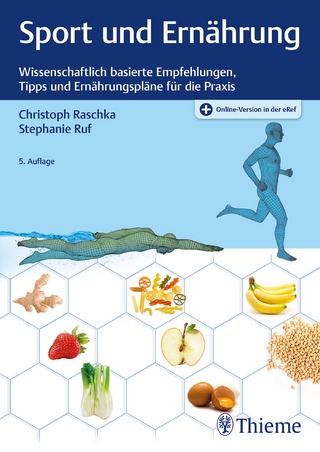
Analysis of Infectious Disease Problems (Covid-19) and Their Global Impact
Springer Verlag, Singapore
978-981-16-2452-0 (ISBN)
This edited volume is a collection of selected research articles discussing the analysis of infectious diseases by using mathematical modelling in recent times. Divided into two parts, the book gives a general and country-wise analysis of Covid-19. Analytical and numerical techniques for virus models are presented along with the application of mathematical modelling in the analysis of their spreading rates and treatments. The book also includes applications of fractional differential equations as well as ordinary, partial and integrodifferential equations with optimization methods. Probability distribution and their bio-mathematical applications have also been studied. This book is a valuable resource for researchers, scholars, biomathematicians and medical experts.
PRAVEEN AGARWAL is Associate Professor at the Department of Mathematics, Anand International College of Engineering, Jaipur, India. He completed his Ph.D. in Mathematics from the Malviya National Institute of Technology, Jaipur, India. His areas of research include special functions, fractional calculus, numerical analysis, differential and difference equations, inequalities, and fixed point theorems. He has authored 7 research monographs and edited volumes and over 150 research articles with approximately 100 mathematicians from around the world in prestigious national and international journals. He has delivered invited talks in universities and institutions around the world as well as guided various research students over the years. He is the recipient of the Most Outstanding Researcher (2018) award for his outstanding contribution to mathematics by the then Union Minister of Human Resource Development of India, Prakash Javadekar. JUAN J. NIETO is Professor of MathematicalAnalysis at the University of Santiago de Compostela, Spain, since 1991 and a fellow of the Royal Galician Academy of Sciences. He received his Ph.D. in Mathematics from the University of Santiago de Compostela, Spain, in 1983. His most influential contributions to date are in the area of differential equations, and his research interests are in fractional calculus, fuzzy equations and epidemiological models. He is one of the most cited mathematicians in the world according to the Web of Knowledge and appears in the Thompson Reuters Highly Cited Researchers list. His works have been published in various journals and conference proceedings of repute. MICHAEL RUZHANSKY is Senior Full Professor at the Department of Mathematics, Ghent University, Belgium, and Professor at the School of Mathematical Sciences, Queen Mary University of London, UK. He received his Ph.D. in Mathematics from Utrecht University, The Netherlands, in 1998, with the thesis titled “Singular Fibrations with Affine Fibers, with Applications to the Regularity Properties of Fourier Integral Operators.” He completed his M.Sc. in Mathematics and Education at St. Petersburg State University, Russia, in 1995, with the thesis titled “Linear Optimal Filtering Theory with the Generalized Quadratic Quality Functional.” He is a recipient of several awards, including Ferran Sunyer I Balaguer Prize (2018), Odysseus I Project (2018), Ferran Sunyer I Balaguer Prize (2014) and Daiwa Adrian Prize (2010). DELFIM F. M. TORRES is Full Professor of Mathematics at the Department of Mathematics, the University of Aveiro (UA), Portugal. He received his Ph.D. in mathematics from the University of Aveiro, in 2002. He is also the Director of the FCT Doctoral Programme Consortium in Mathematics and Applications (MAP-PDMA) of the University of Minho, Portugal, and the University of Beira Interior, Portugal. His main research areas are calculus of variations and optimal control, optimization with emphasis on the regularity of solutions and necessary optimality conditions, fractional derivatives and integrals, dynamic equations on time scales or measure chains, and mathematical biology. He has published over 400 scientific and pedagogical publications, including research papers in reputed international journals, refereed conference proceedings, chapters in books, and books (as an author and editor). Having guided 18 Ph.D. Torres has a strong experience in graduate and postgraduate student supervision and teaching mathematics, both in Portugal and abroad. Moreover, he has led teams and has been a member of several national and international R&D projects, including EU projects and networks. He was a key scientist of the European Marie Curie Project SADCO (Sensitivity Analysis for Deterministic Controller Design), Network for Initial Training, under the 7th Framework Programme FP7-PEOPLE-2010-ITN.
PART-1 GENERAL ANALYSIS: Arni S.R. Srinivasa Rao and Steven G. Krantz:Mathematical Models for Understanding Social Distancing Measures: General Setting and Analysis.- A. Lamrani Alaoui, M. Tilioua, M. R. Sidi and P. Agarwal: Dynamical Analysis of a Caputo Fractional Order SIR Epidemic Model with General Treatment Function.- Zalimkhan Nagoev, Viktor Narozhnov, Arsen Pskhu, and Sergo Rekhviashvili: Protective Face Shield Effectiveness: Mathematical Modelling.- Jonathan Blackledge: The Biodynamics Hypothesis and its Applications for the Mathematical Modelling of Biological Growth and the Analysis of Infectious Diseases.- Saratha Sathasivam, Teoh Poh Lin and Woon Le Yu: Modelling the Dynamics of Fake News Spreading Transmission During COVID-19 Through Social Media.- Renaud Di Francesco: Agent Based Model for COVID-19 Active Propagation Through Interaction: Use Cases of Elderly Care Homes, Households in Lockdown and Large Events.- Emmanuel Afolabi Bakare: Analysis of Optimal Control AgainstAge-Structured Hepatitis-B Virus Model.- Daniele Ritelli: Generalized Logistic Equations in COVID Epidemic Models.- Mohd Aman and Bushra Miftah:Impact on the Transition of Shared Mobility in Metro Cities in India: A Challenge Post-Lockdown of COVID-19.- Abdelmajid Belafhal, S. Chib and Talha Usman: Analysis of COVID-19 Virus Spreading Statistics by the Use of a New Modified Weibull Distribution.- Redouane Qesmi and Aayah Hammoumi: From Finite to Infinite Dimensional Epidemic Models for COVID-19: Lockdown and Lifting Control Measures.- Malú Grave, Rodrigo Bird Burgos, Lisandro Lovisolo and Americo Cunha Jr: Data-Driven Graphical Analysis of Epidemic Trends.- Hoang Anh Ngo, Thai Nam Hoang and Mehmet Dik: Introduction to the Grey Systems Theory and Its Application in Mathematical Modelling and Pandemic Prediction of COVID-19.- Mohammad Ali Akour and Shikhar Kumar Sarma: Developing an Intelligent Health Report Generating System.- Nasser Al-Salti, Ibrahim M. ELmojtaba, Maryam AlYahyai, Jaqueline Mesquita and Dayse Pastore: Recent Developments in the Mathematical Modelling and Analysis of Infectious Disease Problems (COVID-19).- Americo Cunha Jr, Adriano Cortês, Roberto Velho and Rebecca E. Morrison: Uncertainty Quantification in Epidemiological Compartmental Models.- Jorge Fernando Camacho and Cruz Vargas-De-León: Conserved Quantities in Epidemic Systems for the Spread of the Coronavirus Disease.- Rashmi Bhardwaj and Debabrata Datta: Development of Epidemiological Modeling RD_COVID-19 of Coronavirus Infectious Disease and its Numerical Simulation.- Anka Trajkovska Petkoska and Anita Trajkovska: Mediterranean Diet for Boosting Immunity.- Jochen Merker: Rate-Dependent Tipping Phenomena in Compartment Models of Epidemics.- Olumuyiwa James Peter, Tolulope Latunde and Adejimi Adesola Adeniji: Mathematical Modelling and Analysis for Prediction of COVID-19 Transmission and Control.- Alexander Kreinin, Oleksandr Romanko, Rafael Mendoza, Hamed Rasouli, and Curt Burmeister: Analysis of Impact of COVID-19 Pandemic on Financial Markets.- Ferenc A. Bartha, Ferenc A. Bartha, Janos Karsai, Gergely Rost and Tamas Tekeli: The Effects of Symptom-based Testing.- Altaf H. Khan: Challenges in Modeling of an Outbreak’s Prediction, Forecasting and Decision Making for Policy Makers.- PART-2 COUNTRY-SPECIFIC ANALYSIS: Iván Area, Juan J. Nieto, Cristiana J. Silva and Delfim F. M. Torres: Optimal Control of COVID-19: A Case Study in Portugal.- Ludmila Kirianova, Temirkhan Aleroev and Vladimir Griguletskiy: The Fractional Diffusion Equation as a Mathematical Model of Morbidity and Mortality Rates in the Russian Federation.- Juan E. Santos, Jose M. Carcione, Gabriela B. Savioli and Patricia M. Gauzellino: An SEIR Epidemic Model of Fractional Order to Analyze the Evolution of the COVID-19 Epidemic in Argentina.- Su Yean Teh and Hock Lye Koh: Modeling Effectiveness of Partial Lockdown in Breaking COVID-19 Transmission Chain in Malaysia.- G. Bhuju, G. R. Phaijoo and D. B. Gurung: Mathematical Analysis of COVID-19 in Nepal.- Subhas Khajanchi, Kankan Sarkar and Sandip Banerjee: Transmission Dynamics of the COVID-19 Outbreak and Implementation of Intervention Strategies in India.- Alya Saif Al Shehhia, Abdessamad Tridanea, Sabir Bin Muzaffarb and Gulfaraz Khan: Systematic Review of the Mathematical Modeling of Coronaviruses in the Middle East.- Hasan Soyler: Dynamic Simulation and Scenario Analysis of Spreading COVID-19 Pandemic in Turkey.
| Erscheinungsdatum | 05.10.2022 |
|---|---|
| Reihe/Serie | Infosys Science Foundation Series | Infosys Science Foundation Series in Mathematical Sciences |
| Zusatzinfo | 236 Illustrations, color; 17 Illustrations, black and white; XXIV, 627 p. 253 illus., 236 illus. in color. |
| Verlagsort | Singapore |
| Sprache | englisch |
| Maße | 155 x 235 mm |
| Themenwelt | Mathematik / Informatik ► Mathematik ► Angewandte Mathematik |
| Mathematik / Informatik ► Mathematik ► Wahrscheinlichkeit / Kombinatorik | |
| Studium ► Querschnittsbereiche ► Prävention / Gesundheitsförderung | |
| Schlagworte | Agent-based Models • Covid-19 • Dynamical Models • epidemic modelling • Machine Learning Models • Mathematical epidemiology • model prediction • pandemic influenza • Reproductive Number • Statistical Models |
| ISBN-10 | 981-16-2452-6 / 9811624526 |
| ISBN-13 | 978-981-16-2452-0 / 9789811624520 |
| Zustand | Neuware |
| Haben Sie eine Frage zum Produkt? |
aus dem Bereich


